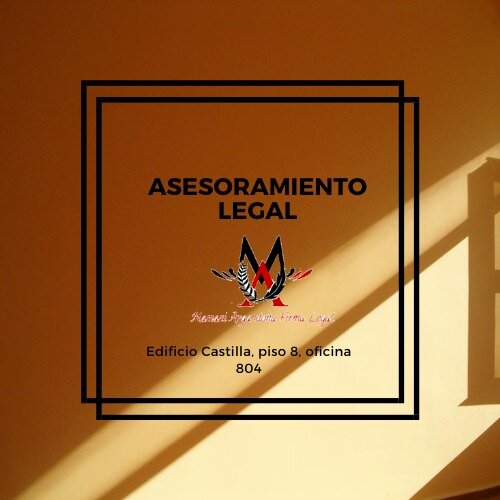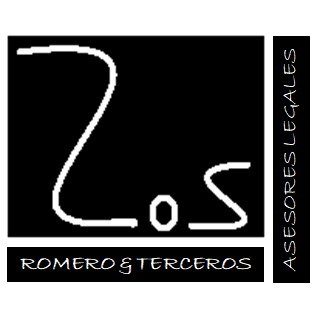Best Franchising Lawyers in Bolivia
Share your needs with us, get contacted by law firms.
Free. Takes 2 min.
Or refine your search by selecting a city:
List of the best lawyers in Bolivia
About Franchising Law in Bolivia
Franchising in Bolivia is a growing sector, supported by legal frameworks and economic policies that encourage foreign investments and business ventures. Although the market is not as mature as in other countries, there is significant potential for development, especially in sectors like food service, retail, and tourism. The Bolivian commercial code provides the foundation for franchise agreements, ensuring both parties' rights and obligations are clearly articulated and enforced. Franchisors and franchisees are allowed significant autonomy in designing their business agreements, but they must adhere to statutory requirements and customary business practices.
Why You May Need a Lawyer
Engaging a lawyer experienced in franchising can be crucial for several reasons:
- Drafting and Reviewing Contracts: To ensure that franchise agreements meet all legal requirements and protect your interests.
- Negotiation: Lawyers can represent you in negotiations to secure favorable terms.
- Compliance: Assisting in adhering to Bolivia's regulatory requirements, preventing legal disputes.
- Dispute Resolution: Providing representation or mediation in case of conflicts between franchisors and franchisees.
- Business Consultation: Offering expert advice on the legal aspects of expanding or operating a franchise business in Bolivia.
Local Laws Overview
Bolivian franchise law is governed mainly by the Commercial Code and other related statutes. Here are key aspects:
- Contractual Freedom: Parties can freely negotiate terms, but must ensure contracts are clear and comply with public policy.
- Registration Requirements: Franchisors may need to register trademarks and adhere to specific local business registration procedures.
- Intellectual Property Rights: Strong emphasis on the protection of trademarks and proprietary information.
- Taxation: Understanding of local tax obligations, including any specific franchise taxes or fees.
- Employment Law: Navigating labor laws is crucial, especially pertaining to local hiring practices associated with franchises.
Frequently Asked Questions
What is a franchise agreement?
A legally binding contract between a franchisor and franchisee that outlines the terms and conditions of the franchise relationship.
Do I need to register my franchise in Bolivia?
While registration of the business is required, there is no specific requirement to register the franchise agreement itself, but trademark registration may be necessary.
What are the common costs involved in starting a franchise?
Initial franchise fees, setup costs for premises, legal fees, and ongoing royalties or marketing fees.
Can franchise agreements be negotiated?
Yes, franchise agreements can and should be negotiated to suit both parties' interests within legal boundaries.
What legal protections are available for franchisees?
The law protects franchisees through specific provisions in the agreements, as well as general commercial and consumer protection laws.
Are there particular industries that thrive in franchising in Bolivia?
The food and beverage, retail, and service industries are prevalent sectors for franchising in Bolivia.
How are disputes resolved in franchising agreements?
Disputes can be resolved through negotiation, mediation, or arbitration, often specified in the franchise agreement.
Is there a disclosure period for franchise agreements in Bolivia?
While there's no statutory required disclosure period, it's good practice to provide ample time for review.
What are the tax implications of operating a franchise?
Operators must consider VAT, income tax, and other local taxes; consulting a tax advisor is recommended.
Can a foreign franchise operate in Bolivia?
Yes, foreign franchises can operate, but they must comply with local laws, including business and trademark registration requirements.
Additional Resources
To further assist those interested in franchising in Bolivia, consider reaching out to:
- Bolivian Chamber of Commerce: Offers guidance on business operations and compliance.
- Servicio de Impuestos Nacionales (SIN): Provides information on tax obligations.
- National Intellectual Property Service (SENAPI): For trademark and intellectual property queries.
- Legal and Business Consulting Firms: Specialize in franchise law and business setup in Bolivia.
Next Steps
If you seek legal assistance with franchising in Bolivia, consider the following steps:
- Research: Gain a basic understanding of local franchise practices and legal requirements.
- Consultation: Schedule consultations with one or more legal professionals specializing in franchising.
- Evaluation: Evaluate the legal services based on expertise, experience, and client feedback.
- Engagement: Engage a lawyer to review your franchise objectives and assist in drafting or negotiating franchise agreements.
- Compliance: Work with your lawyer to ensure all local registrations and compliance measures are completed.
Lawzana helps you find the best lawyers and law firms in Bolivia through a curated and pre-screened list of qualified legal professionals. Our platform offers rankings and detailed profiles of attorneys and law firms, allowing you to compare based on practice areas, including Franchising, experience, and client feedback.
Each profile includes a description of the firm's areas of practice, client reviews, team members and partners, year of establishment, spoken languages, office locations, contact information, social media presence, and any published articles or resources. Most firms on our platform speak English and are experienced in both local and international legal matters.
Get a quote from top-rated law firms in Bolivia — quickly, securely, and without unnecessary hassle.
Disclaimer:
The information provided on this page is for general informational purposes only and does not constitute legal advice. While we strive to ensure the accuracy and relevance of the content, legal information may change over time, and interpretations of the law can vary. You should always consult with a qualified legal professional for advice specific to your situation.
We disclaim all liability for actions taken or not taken based on the content of this page. If you believe any information is incorrect or outdated, please contact us, and we will review and update it where appropriate.
Browse franchising law firms by city in Bolivia
Refine your search by selecting a city.
















